
Chechnya, officially the Chechen Republic, is a republic of Russia. It is situated in the North Caucasus of Eastern Europe, close to the Caspian Sea. The republic forms a part of the North Caucasian Federal District, and shares land borders with the country of Georgia to its south; with the Russian republics of Dagestan, Ingushetia, and North Ossetia-Alania to its east, north, and west; and with Stavropol Krai to its northwest.

Ryszard Kapuściński was a Polish journalist, photographer, poet and author. He received many awards and was considered a candidate for the Nobel Prize in Literature. Kapuściński's personal journals in book form attracted both controversy and admiration for blurring the conventions of reportage with the allegory and magical realism of literature. He was the Communist-era Polish Press Agency's only correspondent in Africa during decolonization, and also worked in South America and Asia. Between 1956 and 1981 he reported on 27 revolutions and coups, until he was fired because of his support for the pro-democracy Solidarity movement in his native country. He was celebrated by other practitioners of the genre. The acclaimed Italian reportage-writer Tiziano Terzani, Colombian writer Gabriel García Márquez, and Chilean writer Luis Sepúlveda accorded him the title "Maestro".

Rafał Aleksander Ziemkiewicz is a Polish political and science fiction author and right-wing publicist.

Gazeta Wyborcza is a Polish daily newspaper based in Warsaw, Poland. It is the first Polish daily newspaper after the era of "real socialism" and was one of Poland's newspapers of record, covering the gamut of political, international and general news from a liberal perspective.

The Polish Press Agency is Poland's national news agency, producing and distributing political, economic, social, and cultural news as well as events information. It was founded in 1918 as Polish Telegraphic Agency (PAT).

Arkady Fiedler was a Polish writer, journalist and adventurer.
Ruslan (Hamzat) Gelayev (Russian: Руслан Гелаев; Chechen: ГелаевгIеран Германи-воI Руслан, romanized: Gelaevhervan Germanivol Ruslan was a prominent commander in the Chechen resistance movement against Russia, in which he played a significant, yet controversial, military and political role in the 1990s and early 2000s. Gelayev was commonly viewed as an abrek and a well-respected, ruthless fighter. His operations spread well beyond the borders of Chechnya and even outside the Russian Federation and into Georgia. He was killed while leading a raid into the Russian Republic of Dagestan in 2004.

Mieczysław Zygmunt Jagielski was a Polish politician and economist. During the times of the People's Republic of Poland he was the last leading politician from the former eastern regions of pre-Second World War Poland.

Teresa Sławomira Torańska was a Polish journalist and writer. She was perhaps best known for her award winning monograph, Oni.

Agora Spółka Akcyjna is a Polish media company. Agora and Gazeta Wyborcza were created on the eve of the parliamentary elections in 1989. Gazeta Wyborcza became the first independent newspaper in Poland, while Agora grew into one of the largest and most renowned media companies in Poland. Since 1999 Agora's shares have been listed on the Warsaw Stock Exchange.
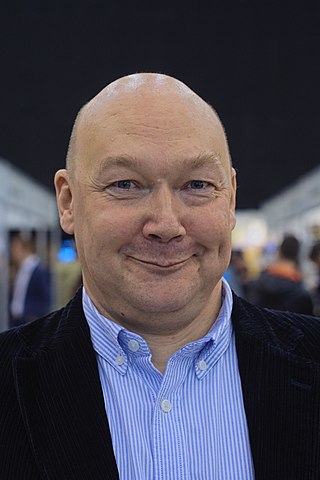
Wojciech Orliński is a Polish journalist, writer, and blogger. Between 1997 and 2021 he was a regular columnist for Gazeta Wyborcza.
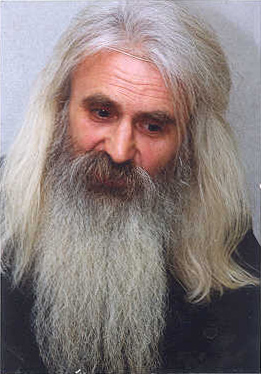
Viktor Alekseyevich Popkov was a Russian dissident, Christian, humanitarian, human rights activist and journalist.

Gdynia Literary Prize is a Polish literary prize, which is awarded annually to authors of the best books published in the previous year in the prose, poetry, essay and translation categories.
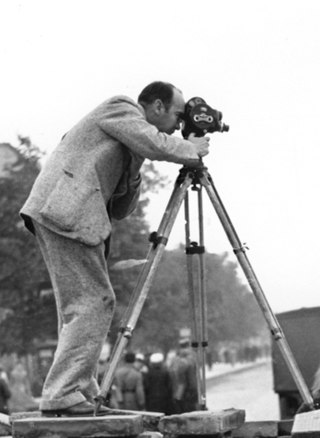
Julien Hequembourg Bryan was an American photographer, filmmaker, and documentarian. He is best known for documenting the daily life in Poland, Soviet Union, and Nazi Germany between 1935 and 1939, in the leadup to and early days of the Second World War. He was honored with Zasłużony dla Kultury Polskiej" during his last visit in Poland (1974) for showing the truth about the Invasion of Poland.

Squadron 303 is a non-fiction book written by Polish author Arkady Fiedler and published by Peter Davies. It became his most popular book, selling over 1.5 million copies. Written in 1940, published in August 1942, the book is about the legendary No. 303 ("Kościuszko") Polish Squadron of Polish Air Force fighter pilots who flew with Great Britain's Royal Air Force (R.A.F.) during the Battle of Britain.

Polina Zherebtsova's Journal: Chechnya 1999-2002 is the edited diary kept by Polina Zherebtsova while she was living in Grozny, the capital of the Chechen Republic. It was published in September 2011 in Russia. Zherebtsova wrote the diary when she was 14–17 years old, from the beginning of The Second Chechen War until December 2002. It tells the story of ethnic relations between Russian and Chechen peoples and of the lives of civilians during the war. This book is non-fiction, but real names were changed by the author in the book.
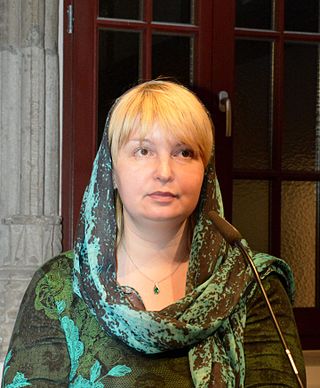
Polina Zherebtsova is a Chechen Russian documentarian, poet and author of the diaries Ant in a Glass Jar, covering her childhood, adolescence and youth that witnessed three Chechen wars.
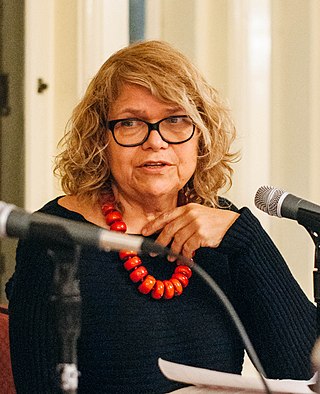
Anna Bikont is a Polish journalist for the Gazeta Wyborcza newspaper in Warsaw. She is the author of several books, including My z Jedwabnego (2004) about the 1941 Jedwabne pogrom, which was published in English as The Crime and the Silence: Confronting the Massacre of Jews in Wartime Jedwabne (2015). The French edition, Le crime et le silence, won the European Book Prize in 2011.

Jacek Wojciech Żakowski is a Polish journalist and author. In 1989 he was head of editorial division of Gazeta Wyborcza, 1989–1990 spokesman of the Citizens Parliamentary Club, in 1991–1992 president of the Polish Agency Informacyjna, journalist of the weekly Polityka. Since 1999 head of the Collegium Civitas Journalism Department in Warsaw.
Antonia Lloyd-Jones is a British translator of Polish literature based in London. She is best known as the long-time translator of Olga Tokarczuk's works in English, including Drive Your Plow Over the Bones of the Dead which was shortlisted for the International Booker Prize in 2019. The former co-chair of the Translators Association in the United Kingdom from 2015 to 2017, she is also a mentor for the Emerging Translator Mentorship Programme in the National Centre for Writing and has mentored several early-career translators from Polish into English.

















